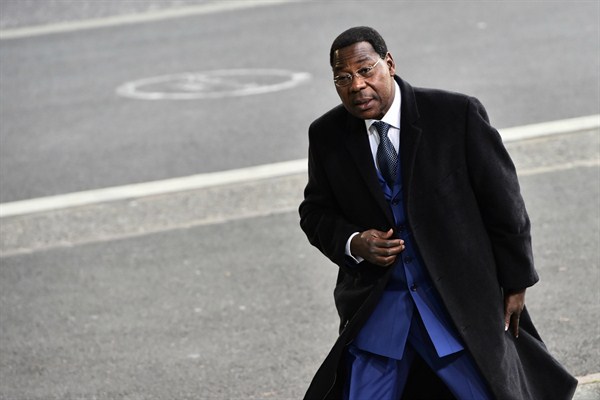Last year was a busy one for elections in Africa, and 2016 will bring many more, with polls ranging from the Central African Republic later this month to Ghana in November. The upcoming presidential election in the small West African country of Benin, scheduled for Feb. 28, is notable because there is no incumbent in the race. Outgoing President Boni Yayi, who won election in 2006 and re-election in 2011, is stepping aside out of respect for a constitutional provision that limits presidents to two terms—a growing rarity in a region with a new generation of aspiring presidents-for-life. Benin’s wide-open campaign offers some well-funded opposition challengers the chance to unseat the ruling party, but the new president, whoever ends up winning, will face a troubled economy heavily dependent on agricultural exports, especially cotton, and shaken by downturns in West Africa.
Yayi’s party the Cowry Forces for an Emerging Benin, known by its French acronym, FCBE, nominated current Prime Minister Lionel Zinsou as its candidate in late November. The appointment of Zinsou, who was only brought in as prime minister in June, reflected two developments: a shakeup in the ruling party after it lost 10 seats in the parliamentary elections of April 2015, and the economic slump Benin had begun to experience, caused partly by economic troubles in neighboring Nigeria. Benin relies on Nigeria as a key market for its exports, including cotton, which accounts for nearly 40 percent of Benin’s GDP and 80 percent of official export receipts.
Zinsou has an elite pedigree—his uncle served as Benin’s president in 1968-1969. But because he had a prominent banking career in France and is said to be a key player in France’s economic relations with Africa, critics have depicted him as an outsider who is unfamiliar with Benin and even, some say, a French puppet. In a rather extraordinary statement, Zinsou, reflecting his life spent largely abroad, even told Radio France Internationale, “I don’t know Benin at all.”

